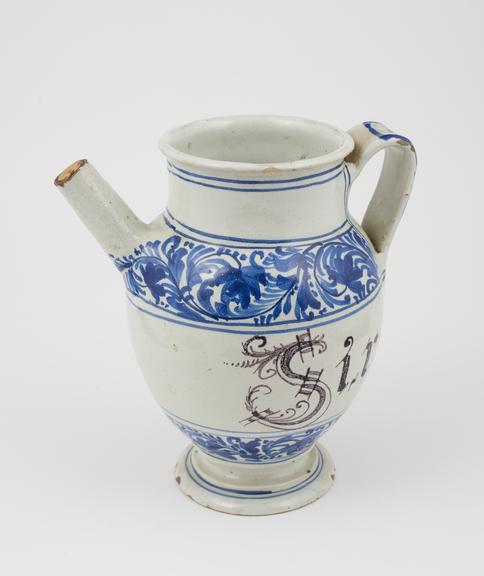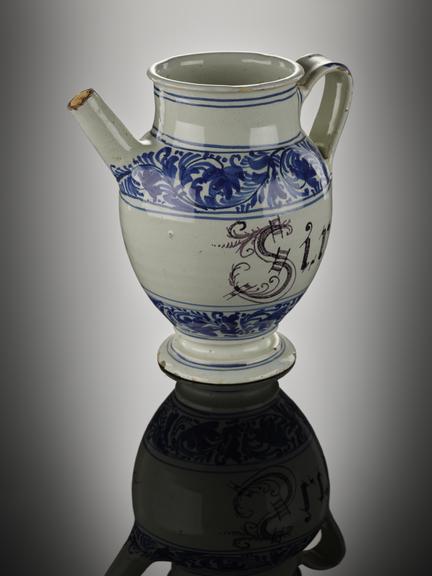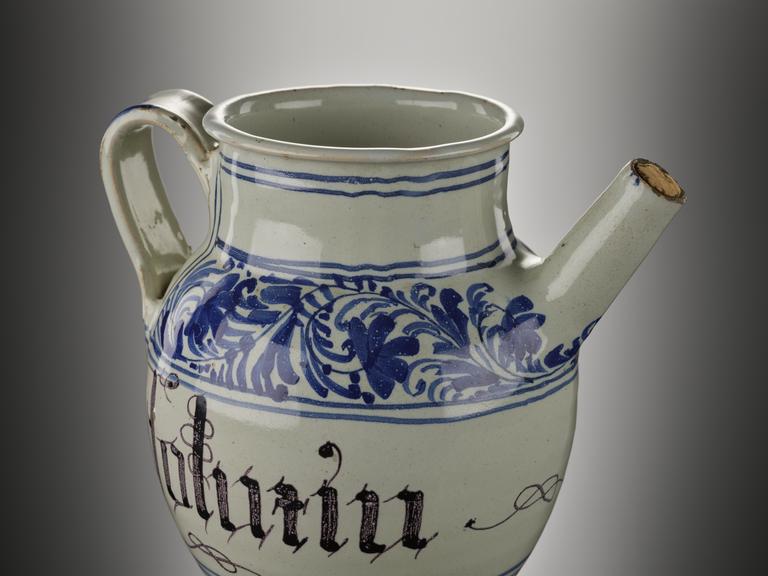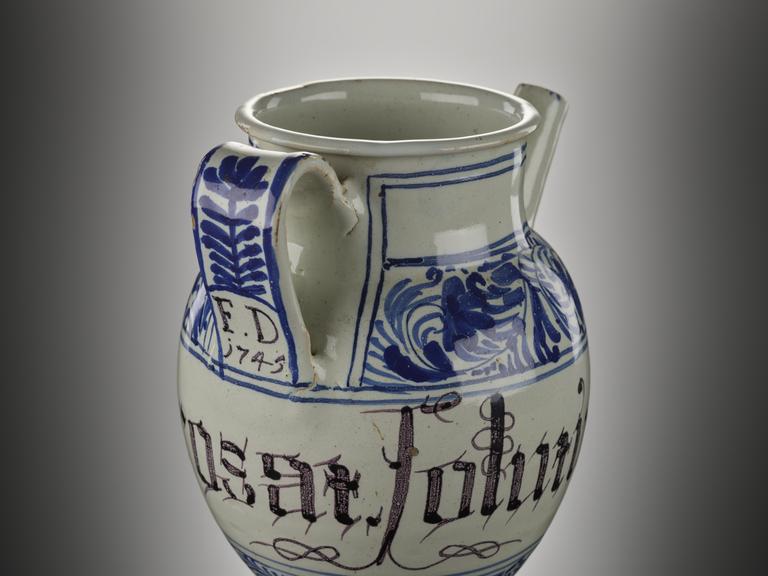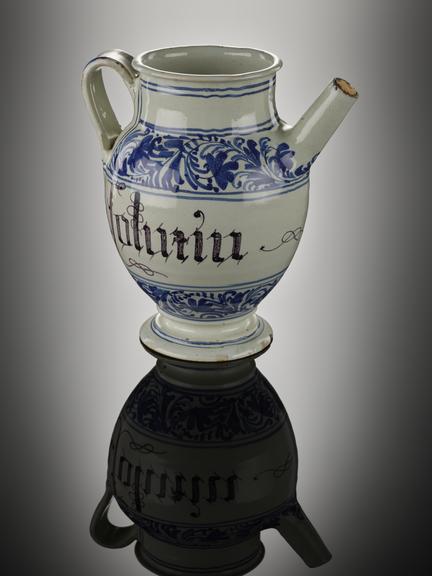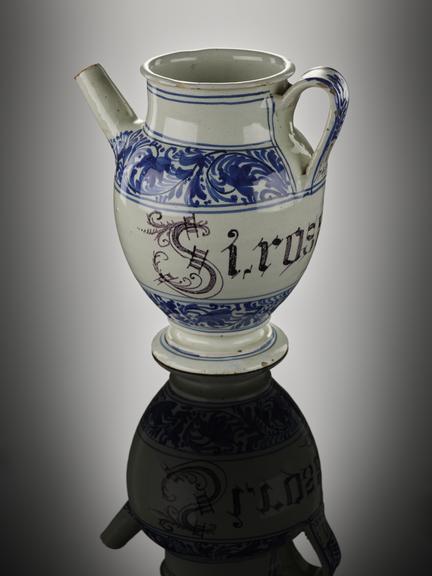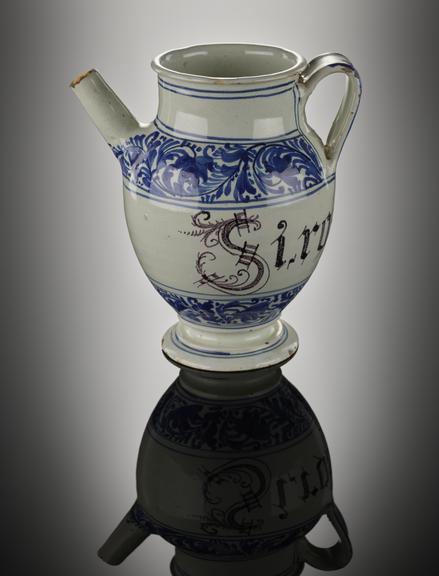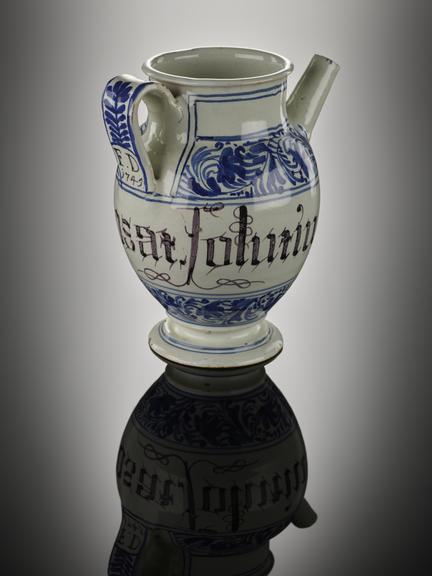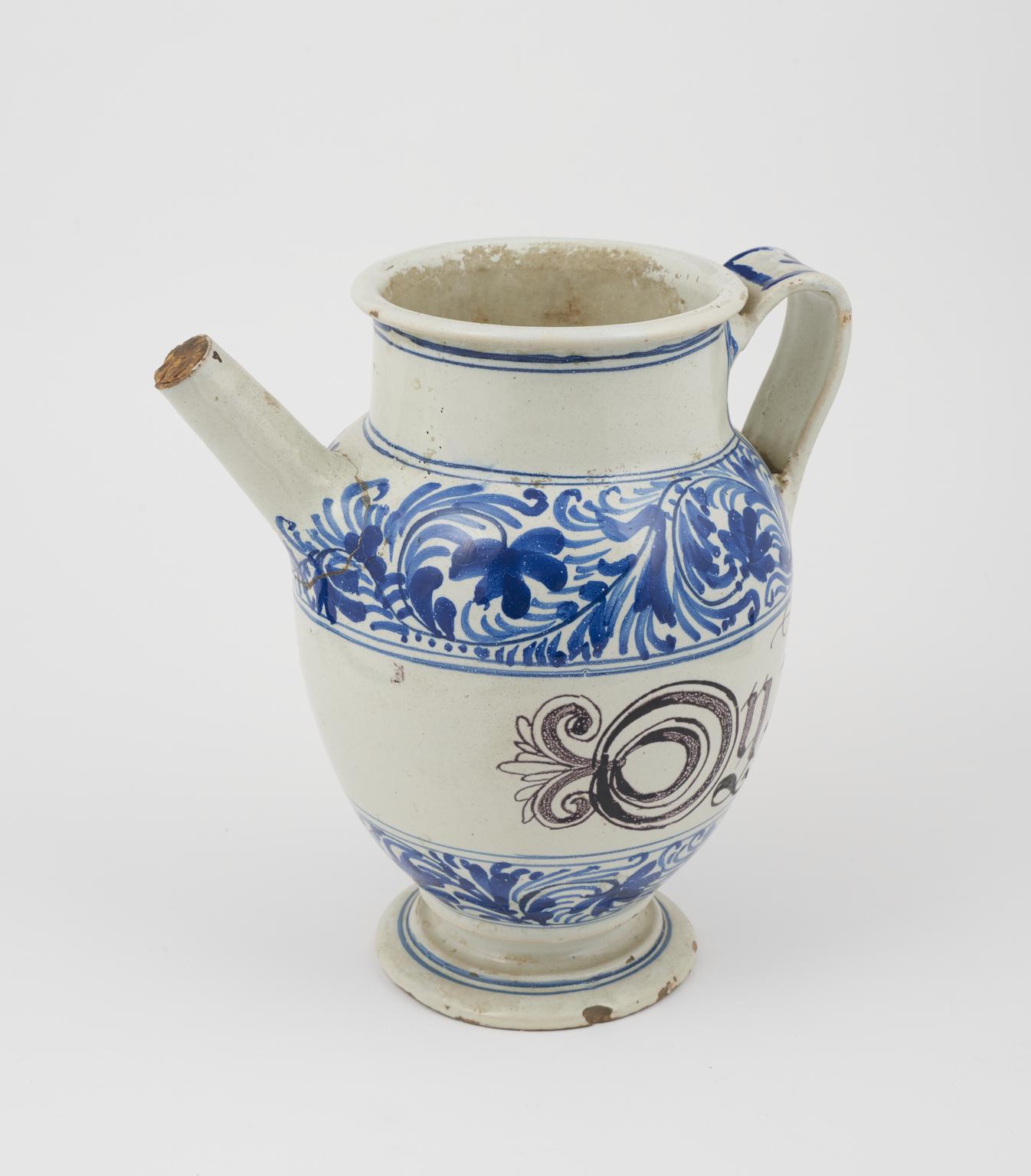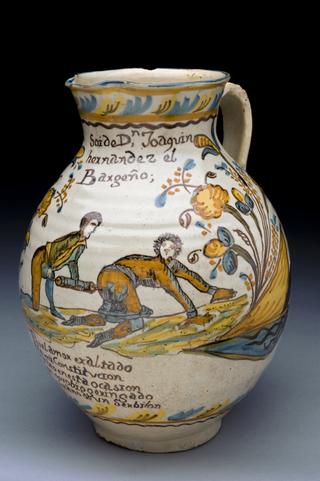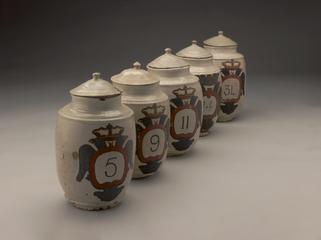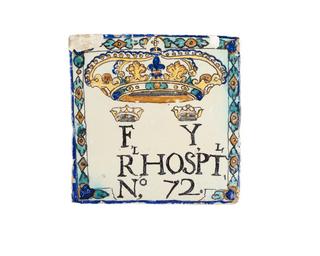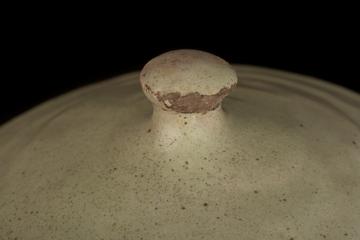Syrup jar for syrup of roses
Syrup jar, decorated in blue on white stylized foliage, labelled Si. rosat. solutiu (syrup of roses solutive), possibly from Veneto, North Italy, dated F.D. 1745
More
Syrup jars were used to store syrups and preparations for medicial use. Their use can be traced back to 600 – 400 BCE. in Mesopotamia (Iraq today), though they became popular in Europe during the thirteen and fourteenth centuries via the Middle Eastern trade with Spain.
Si. Rosat Solutiu translates to syrup of roses solutive, which was a syrup made from boiled roses and sugar and used to treat constipation and to remove yellow bile and phlegm. For centuries, bodies were thought to include four vital fluids, known as humours; yellow bile, black bile, blood and phlegm. A healthy body and mind had these humours in balance with each other. Too much of any one of them was believed to cause illness.
- Measurements:
-
overall: 220 mm x 150 mm x 200 mm,
- Object Number:
- 1985-2256/1
- type:
- syrup jars
- Image ©
- The Board of Trustees of the Science Museum
